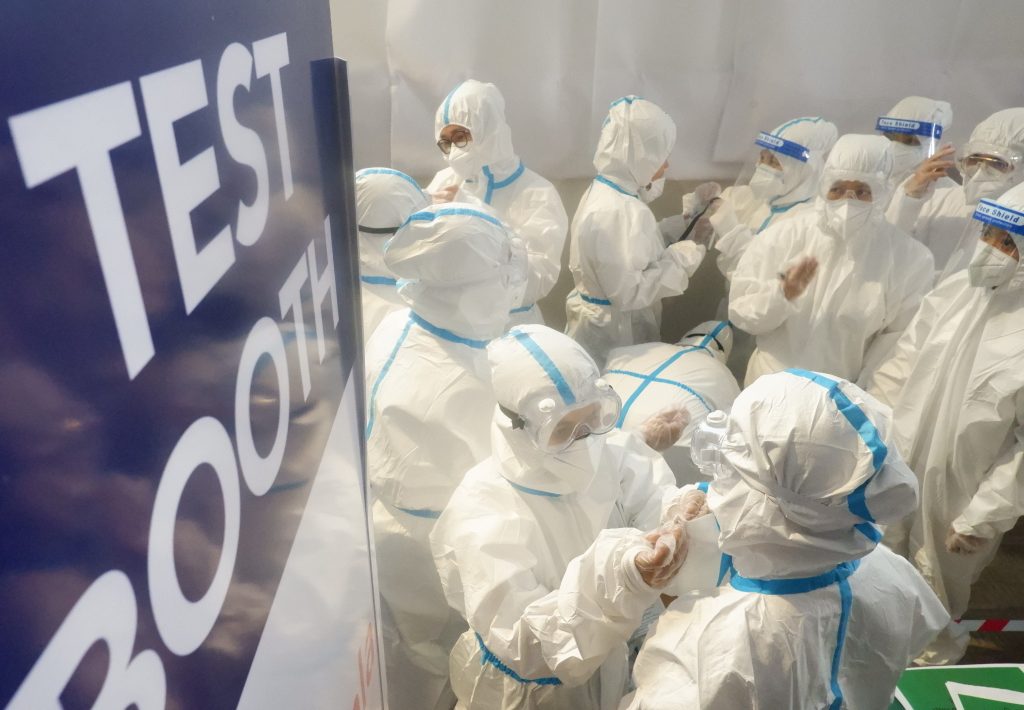News
Procurement of Covid-19 supplies legal under Bayanihan 1: solon

MANILA – Deputy Speaker Rodante Marcoleta on Monday said Bayanihan 1 is the prevailing law in the government’s procurement of “readily available” personal protective equipment (PPE) and other Covid-19 supplies from Pharmally Pharmaceutical Corp.
During the hearing of the House Committee on Good Government and Accountability, Marcoleta said “time is of the essence” as the country was gripped with the urgent need for medical supplies early into the pandemic.
Marcoleta said Bayanihan 1 was there precisely to allow the government to procure the Covid-19 supplies “at the time they are needed most” and in the most expeditious manner as exemptions from Republic Act 9184, otherwise known as the “Government Procurement Reform Act,” and other relevant laws.
“Precisely the law exempted you because you’re supposed to take the necessary measures as soon as there are because time is of the essence,” Marcoleta said. “Under this law we are not supposed to be taking the procedures and mechanisms of Republic Act 9184. We’re supposed to be exempted,” he said.
The law also allows “emergency” negotiated procurement “in case of imminent danger to life or property during a state of calamity, or when time is of the essence arising from natural or man-made calamities or other cases where immediate action is necessary.”
Department of Budget and Management’s Procurement Service (PS-DBM) former chief Lloyd Christopher Lao said the primary purpose of the provision under Bayanihan law was to “judiciously economically, and expeditiously obtain these items by procurement”.
Lao, however, noted that as part of the procurement service’s exercise of due diligence, they still adhered to following the minimum documentary requirements specified for negotiated procurement under emergency cases despite Bayanihan 1’s exemptions.
“Since Day 1 of the Senate investigation, I was already stressing the body that we are operating under Bayanihan 1, which allows us to make contracts, either verbal or in writing, just to make sure that we are able to get the items on hand because of the dire emergency,” Lao said.
“However, as part of our exercise of due diligence, we also conducted minimum standards like ITR (income tax return) as proof that they are legitimate company, omnibus sworn statement, and the mayor’s permit,” Lao added.
Lao highlighted that one criterion they considered is the availability of goods, and Pharmally had the capacity to deliver.
Former PS-DBM director and now deputy Ombudsman Warren Liong, during the same hearing, said a formal written offer or bid may be submitted but it is not required under Bayanihan 1.
Liong said a verbal agreement as to the price and as to compliance to documentation shall be “sufficient as basis to recommend an award”.
“Exempted na po dapat tayo kay competitive bidding at negotiated procurement under emergency cases na documentation. Pero hindi nga po yan ang ginawa namin. Para po masigurado niyo na meron kaming ginawang due diligence pareho naming ni-require yung documentation kaya negotiated procurement under emergency cases (The government is already exempted from the documentary requirements for competitive bidding and negotiated procurement. But we didn’t do that. To ensure that there is due diligence, we still required the documentation for negotiated procurement under emergency cases),” Liong said.
COA has flagged the DOH for transferring PHP42.4 billion worth of funds to PS-DBM for the procurement of Covid-19 supplies.
The PS-DBM awarded Pharmally Pharmaceuticals Corporation contracts worth PHP8.68 billion for the purchase of PPE and testing kits, which were believed to be overpriced, at the onset of the Covid-19 pandemic last year.
Last week, senators expressed concern why a bulk of government contracts for the purchase of Covid-19 medical supplies went to Pharmally, which existed only six months before the pandemic.
Pharmally was registered in September 2019 with the Securities and Exchange Commission with a paid capital of PHP625,000.





















